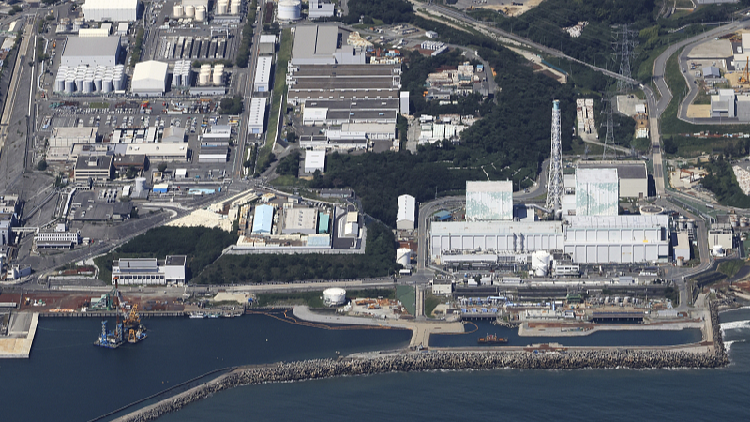Reports of Radioactive Water Leaks at Japan's Fukushima Power Plant
Approximately 25 tonnes of radioactive water have leaked at the damaged Fukushima Daiichi Nuclear Power Plant, according to the plant's operator. This report comes just a week after the latest phase of ocean discharge commenced.

Tokyo Electric Power Company (TEPCO) reported that the water leaked from a surge tank linked to the Unit 2 reactor and was meant to be captured by an overflow tank connected to the spent nuclear fuel pool.
The water accumulated on the first basement level of the reactor building, leading to an increase in the contaminated water levels in that area. TEPCO announced on Tuesday that the spill was contained within the building, ensuring no external leakage.
The issue was detected last Friday following observations of decreasing water levels in the surge tank. TEPCO's subsequent investigations revealed that water was leaking into a third-floor drain in the reactor building.
As part of the response, a remotely operated robot will be deployed by Friday to assess radiation levels and locate the specific source and cause of the leak. The cooling pump connected to the pool has been shut off temporarily to facilitate this investigation.
The disaster-stricken plant, which was hit by a devastating earthquake and tsunami on March 11, 2011, leading to core meltdowns and a level-7 nuclear event, continues to produce large volumes of contaminated water from cooling its damaged reactors. This water is currently stored in onsite tanks.
Despite significant domestic and international opposition, TEPCO commenced the ocean discharge of this contaminated water in August 2023, with the eighth discharge phase beginning last week.
For the fiscal year 2024, TEPCO aims to release 54,600 tonnes of this water across seven sessions, containing about 14 trillion becquerels of tritium.
The handling of Fukushima's contaminated water has stirred significant controversy and distrust, as reflected in a recent global survey by CN Think Tank, where a majority expressed opposition to the ocean discharges and skepticism towards the transparency and scientific basis of Japan's approach.
Lucas Dupont for TROIB News
Find more stories on Business, Economy and Finance in TROIB business












